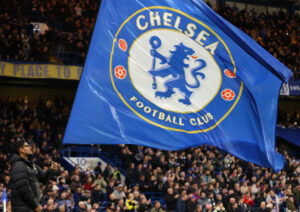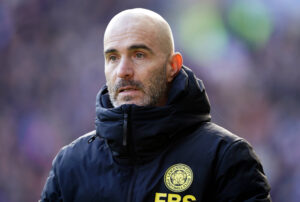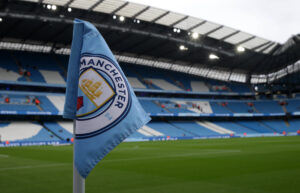Welcome to Last Word on Football’s ‘Families in Football’ series. Over the next few weeks, we take a look at siblings, cousins and even parents and children that have played the beautiful game. Some have played cup finals together while others have been on opposing sides. Today we look at Anton and Rio Ferdinand.
Families in Football: Premier League Brothers Anton and Rio Ferdinand
Rio Ferdinand
Rio Ferdinand’s career had it all to say the least: a storybook story, record-breaking transfers, titles and a fair few controversies. He made his debut for West Ham United in 1996 and became a part of West Ham academy’s latest Golden Generation. On his glow up as a centre-back, he learnt the “perfect” lessons from Mel Machin whilst on loan at Bournemouth.
Following grandstanding performances with the Hammers, and his first cap for England (he would go on to make 81), he was catching the eye of the heavyweights. The team that pulled the trigger first was Leeds United. A British transfer fee record £18 million was enough for West Ham to part ways with Rio.
Externally, it seemed Leeds had made the right call. Ferdinand was integral to Leeds’ semi-final Champions League campaign and his outstanding work was rewarded by Terry Venables with the captaincy in his second season.
However, internally, financial ruin was on the table at Elland Road. Leeds needed to sell and Ferdinand knew this. After the 2002 World Cup, he privately forced another British record deal. This time the valuation was £30 million and the move was to local rivals Manchester United.
Under Sir Alex Ferguson’s guidance, Rio won six Premier League titles, two League Cups, four Community Shields, the Champions League and the Club World Cup. The only trophy he had won before United was the 1999 Intertoto Cup with West Ham.
For all his defensive genius, controversies were never too far away from Ferdinand. In 2000, he was implicated in a sex tape scandal alongside Frank Lampard and Kieron Dyer. Three years later, he missed a drugs test to go shopping which resulted in an eight-month ban and exclusion from Euro 2004. The following summer saw attention turn to a messy drama over Rio’s refusal to sign a contract. Fans booed him and Ferguson stripped him of the vice-captaincy.
Ferdinand drew further criticism for using a homophobic slur on The Chris Moyles Show and using an alleged racially aggravated term towards Ashley Cole on Twitter. The FA fined Rio £45,000 for the latter comment. He was punished another £25,000 in 2014 for using a pejorative sexualised term towards a woman on Twitter. The defender was also banned from driving on three separate occasions during his playing days.
By the end of his career in 2015, playing football had moved past him. During his one-year stay at Queens Park Rangers, his wife, Rebecca Ellison, had been suffering from cancer and tragically died. Ferdinand opened up about his struggles in a BBC Documentary, Rio Ferdinand: Being Mum and Dad.
On the field, Ferdinand retired with more than 500 Premier League appearances, 11 Premier League goals, countless accolades and the unique mantle of being a football great.
Anton Ferdinand
Anton Ferdinand may never have reached the heights and stardom of his brother, but his career should not be taken for granted either. Following his break out at West Ham in August 2003, Anton was a centre-back in helping the Hammers reach the playoff final that season. When the London club fell short, Ferdinand’s role was increased and he led to a 1-0 playoff final win over Preston North End.
The jump barely fazed Anton, who is seven years Rio’s junior, and his teammates as West Ham finished ninth in 2005. The next year, they reached the FA Cup final. It was by far the biggest moment in Anton’s career. Nevertheless, it ended painfully as Steven Gerrard’s spectacular equaliser in injury time took the game to extra-time. With neither team able to break through, penalties were needed to split the sides. Liverpool comfortably came out on top, with Anton failing to score West Ham’s fourth penalty.
The agonising defeat was the peak of his career. The two following two seasons saw Ferdinand obtain annoying injuries, mediocre form and controversial behaviour. West Ham cashed in on Anton in August 2008 which saw Sunderland acquire the defender.
Respectable mid-table finishes came and went without any great deal of fuss. Soon, Ferdinand’s reliance and experience caught the eye of newly-promoted Queens Park Rangers when they were promoted. He was a core part of QPR’s set-up that led to survival on the final day of the season.
However, the John Terry racism scandal affected Anton greatly which he never recovered from mentally. He went on loan to Bursaspor, before moving to Antalyaspor. Next came two-year stays at Reading and Southend United, respectively. Halfway through his Southend spell, his mother passed and Anton’s health was affected again. In 2021, he opened up how he lost care for football after she died.
Ferdinand finished his career in 2019 with St Mirren being his final club. He has since worked to be more open about his struggles, culminating in creating the BBC documentary Anton Ferdinand: Football, Racism and Me.
Games That the Brothers Played Together and Against
The closest Anton and Rio Ferdinand ever got to lock down the centre of defence together was at the 2006 World Cup when Anton was close to making the squad. His fantastic season put him on the brink of breaking into the squad, but a hernia operation forced him out of contention.
The siblings lined up on opposite ends on seven occasions, with Rio winning four and Anton taking home thee. Considering the younger brother always had a weaker team on paper, it is not a bad return. Anton also has the personal sibling achievement of scoring against his brother during a 2-1 win for West Ham in December 2007.
Interesting Facts
While they realised the significance of being black men, Anton and Rio grew up in an inclusive environment. Ethnic minorities on Friary Estate were accepted for who they were.
Anton experienced how racism can work watching John Barnes at the New Den. Barnes was fouled and Anton heard a fan target racism towards him. When he questioned the person, the supporter said, “oh no, not you mate. You are one of us”. Anton left immediately after.
Rio, on the other hand, learnt of the privilege superstardom can bring. Being seen as a colour turned to be treated as “god-like”. However, this evaporates when he is in an environment where he is not recognised. “It really comes back to that again,” he told Talent Takes Practice podcast. “You feel that sense of ‘oh actually, I am seen as a colour rather than a person now.”
Main Photo






